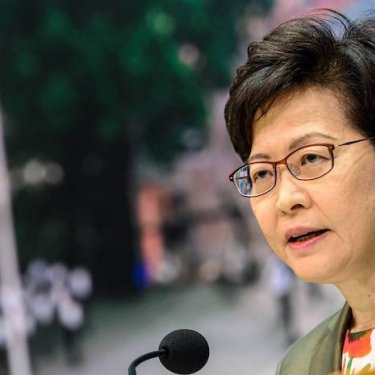Hong Kong: RSF concerned by future “partnership” between public broadcaster RTHK and Chinese state media

Reporters Without Borders (RSF) is concerned that the future “partnership” between Radio Television Hong Kong (RTHK) and the Chinese state media, announced on 9th of August, would turn the public media group into a vessel to distribute the regime’s propaganda contents in Hong Kong.
On 9th of August, Hong Kong Chief Executive Carrie Lam announced that public broadcaster Radio Television Hong Kong (RTHK) would build a long-term “partnership” with state media conglomerate, China Media Group (CMG) in order to boost “the understanding” of the Chinese Communist Party and to nurture “a stronger sense of patriotism” in Hong Kong. Lam only mentioned the possible broadcasting of “dramas and documentaries” but the cooperation is likely to extend to news-related contents.
“The Hong Kong government, which has already censored an overwhelming amount of contents and imposed a talk-show hosted by Chief Executive Lam, will find in this partnership a perfect pretext to force RTHK to distribute Chinese propaganda contents”, says the head of RSF East Asia bureau, Cédric Alviani, who denounces the “increased interference from the Hong Kong government against RTHK’s editorial freedom in a blatant violation of freedom of the press despite the principle being enshrined in the Basic Law.”
In recent years, the public broadcaster has been the target of harassment and censorship campaigns that have intensified with the arrival of the new Director of Broadcasting, Patrick Li, on 1st March. Since that day, numerous productions have been pulled off air, hundreds of episodes have been deleted from RTHK’s archives, social media accounts have been censored, and Carrie Lam herself has hosted her own show to promote unpopular electoral reform.
China Media Group (CMG), unofficially known as “Voice of China”, is a single umbrella organisation that combines state television (CCTV-CGTN) and the national and international radio broadcasters (China National Radio and China Radio International). These media are statutorily compelled to relay the Chinese communist party's propaganda contents. In a report titled "China's Pursuit of a New World Media Order" published in 2019, RSF revealed Beijing's strategy, deployed by state media to control information beyond its borders, a project that poses a threat to press freedom throughout the world.
Hong Kong, once a bastion of press freedom, has fallen from 18th place in 2002 to 80th place in the 2021 RSF World Press Freedom Index. The People's Republic of China, the world's largest captor of journalists with at least 125 detained, has stagnated in the index at 177th out of 180.



